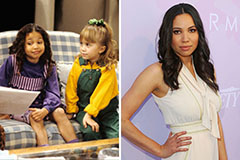A truly captivating Montessori environment is a carefully designed space that encourages a child's intrinsic desire to learn. It offers a wide range of resources that are strategically chosen to foster each child's autonomy. Throughout this harmonious {space|, children are free to discover at their own pace, guided by their passions.
- One aspect of a Montessori environment is the layout of materials. They are arranged in a way that is both easy to reach for children and aesthetically attractive.
- Additionally, natural illumination and fresh air are incorporated to create a serene and stimulating setting.
Creating a Montessori Classroom in Australia
In Australia, the unique characteristics of Montessori education are brought to life through thoughtfully designed classrooms. They spaces nurture the child's natural curiosity, promoting independent learning. A well-designed Montessori classroom is a sanctuary where children can develop at their own speed.
- Fundamental aspects of an Australian Montessori classroom often include natural resources, a range of hands-on activities, and a flexible layout that encourages movement
- Educators in Australian Montessori classrooms act as mentors, assisting children and presenting individualized support.
Building a Montessori classroom is a shared effort that engages teachers, parents, and sometimes architects.
Unlocking Potential with Wooden Blocks: A Montessori Essential
Wooden blocks present a captivating and versatile tool within the Montessori classroom. These unassuming pieces offer children an unparalleled opportunity to explore their creativity, develop fine motor skills, and build spatial reasoning. Through free play with blocks, young minds design towers, houses, or imaginative worlds, fostering a love for learning through hands-on exploration.
A key aspect of the Montessori approach centers around allowing children to learn at their own pace and discover new concepts through tangible experiences. Wooden blocks ideal embody this philosophy, presenting a platform for self-discovery and guided play.
As children handle with the blocks, they develop a deep understanding of concepts such as size, shape, stability, and weight. This hands-on engagement lays a strong foundation for future academic growth.
Beyond their educational value, wooden blocks also promote social interaction and cooperation. Children may work together to design elaborate structures, sharing ideas and overcoming challenges.
In conclusion, wooden blocks embody a valuable Montessori tool, releasing children's potential through play-based learning. They inspire creativity, strengthen motor website skills, and cultivate a love for exploration and discovery.
Wooden Blocks in Australia: Fostering Fine Motor Skills and Imagination
Wooden blocks have always been a beloved item in Australia for generations. These classic shapes offer little ones a abundance of opportunities to learn. Through playing, children hone their fine motor abilities, which plays a crucial role for tasks like writing and dressing their own clothes.
Beyond motor development, wooden blocks spark the imagination. Children can construct castles, houses, or even vehicles, encouraging their creativity and problem-solving talents.
{
ul
li Wooden blocks are a versatile instrument for learning through imagination.
li They help children develop essential dexterity.
li Blocks inspire creativity, problem-solving, and spatial awareness.
ul
A Look at the Enduring Power of Wooden Blocks in Montessori Classrooms
Wooden blocks remain a fundamental element within the Montessori classroom. These simple, yet versatile toys offer children an unparalleled chance for exploration and discovery. Through manipulating blocks, young minds develop essential skills such as spatial reasoning, problem-solving, and fine motor coordination. The tactile nature of wood offers a deeply engaging sensory experience, further enriching the learning process.
Moreover, wooden blocks fuel boundless creativity. Children can build towers, houses, or imaginative creations, limited only their own dreams. This open-ended play encourages self-expression and the development of critical thinking skills as children test different configurations and designs.
- Wooden blocks are durable, withstanding years of enthusiastic play.
- They are also eco-friendly, made from renewable resources.
The timeless appeal of wooden blocks in Montessori education lies in their ability to nurture holistic development, combining hands-on learning with imaginative play. They function as a gateway to exploration, creativity, and lifelong love of learning.
Australian Supplies for High-Quality Wooden Blocks
Australia boasts a wealth of high-quality timber, making it an ideal location to source blocks for wooden block construction. Craft enthusiasts and businesses alike can find a variety of sustainably sourced wood in multiple species, guaranteeing the perfect foundation for durable and beautiful wooden blocks. From timeless hardwoods like blackbutt to softer options like hoop pine, Australian materials offer a abundance of possibilities for creating high-quality wooden blocks.
- Numerous reputable timber merchants are located across the country, offering expertise on selecting the appropriate wood for your project.
- It's essential to choose sustainably sourced timber to minimize environmental impact.
- Consider working with local artisans or workshops who specialize in crafting wooden blocks using Australian timber.
 Spencer Elden Then & Now!
Spencer Elden Then & Now! Hallie Eisenberg Then & Now!
Hallie Eisenberg Then & Now! Jurnee Smollett Then & Now!
Jurnee Smollett Then & Now! Meadow Walker Then & Now!
Meadow Walker Then & Now! Nadia Bjorlin Then & Now!
Nadia Bjorlin Then & Now!